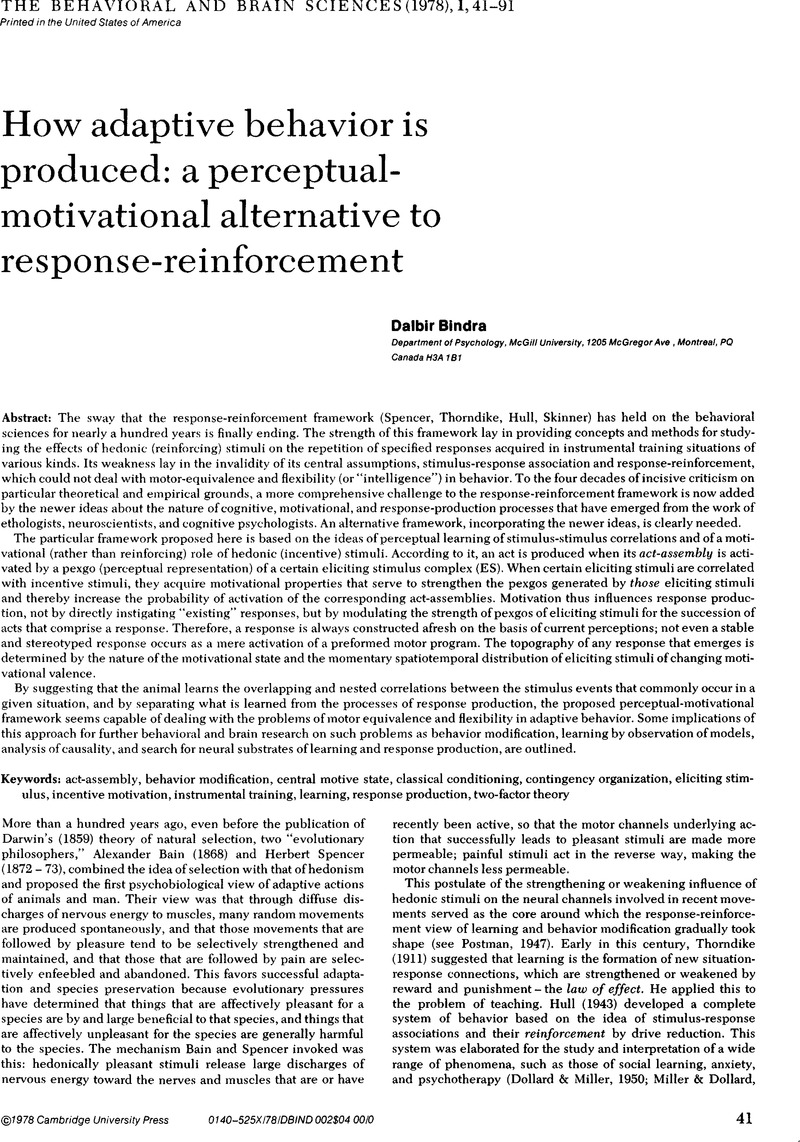No CrossRef data available.
Article contents
Misconceptions about the origins of behavior
Published online by Cambridge University Press: 04 February 2010
Abstract
An abstract is not available for this content so a preview has been provided. Please use the Get access link above for information on how to access this content.

- Type
- Open Peer Commentary
- Information
- Copyright
- Copyright © Cambridge University Press 1978
References
REFERENCES
Gilbert, R. M. Variation and selection of behavior. In: Gilbert, R. M. and Millenson, J. R. (eds.), Reinforcement: Behavioral Analyses. Pp. 264–76. Academic Press, New York, 1972.Google Scholar
Hermstein, R. J.The evolution of behaviorism. American Psychologist. 32:593–603. 1977a.CrossRefGoogle Scholar
Doing what comes naturally: a reply to Professor Skinner. American Psychologist. 32:1013–16.1977b.CrossRefGoogle Scholar
Segal, E. F. Induction and the provenance of operants. In: Gilbert, R. M. and Millenson, J. R. (eds.), Reinforcement: Behavioral Analyses. Pp. 1–34. Academic Press, New York, 1972.Google Scholar
Skinner, B. F.Hermstein and the evolution of behavior. American Psychologist. 32:1006–12.1977.CrossRefGoogle Scholar
Staddon, J. E. R. Temporal control and the theory of reinforcement schedules. In: Gilbert, R. M. and Millenson, J. R. (eds.), Reinforcement: Behavioral Analyses. Pp. 212–62. Academic Press, New York, 1972.Google Scholar




